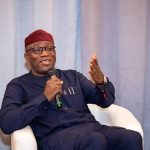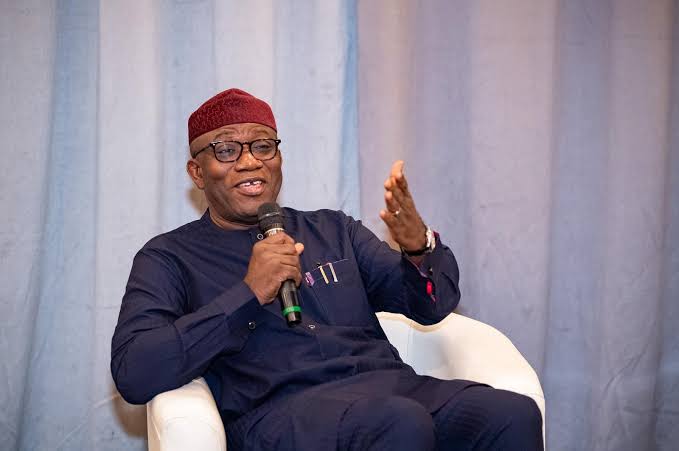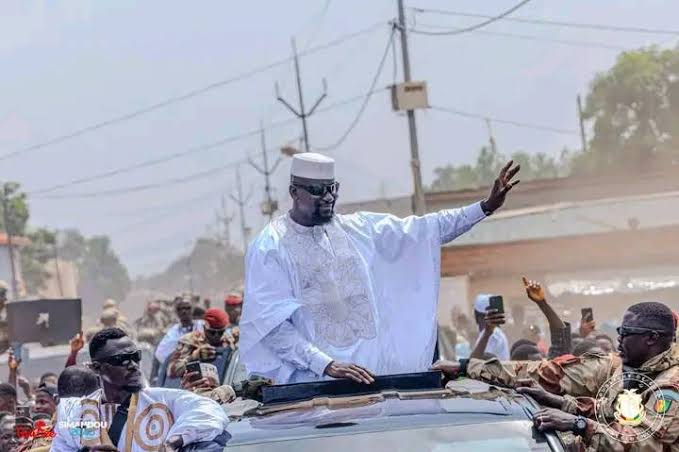Former Nigerian minister, Kayode Fayemi
Abuja, Nigeria
Former governor of Nigeria’s south-western state of Ekiti, Kayode Fayemi, a prominent Nigerian politician and former solid minerals minister, delivered a nuanced address on governance challenges in West Africa during a recent event hosted by the Amandla Institute for Policy and Leadership Advancement in Abuja.
Speaking at the opening ceremony of a meeting of experts, Fayemi acknowledged the deep frustration many citizens feel towards civilian governments, particularly their inability to deliver consistent progress.
He however cautioned against military rule as a viable alternative, drawing on historical examples to underline his point. Fayemi’s remarks are particularly timely given the recent wave of coups in the region. These political upheavals have strained the Economic Community of West African States (ECOWAS), with Mali, Niger, and Burkina Faso formally withdrawing from the bloc earlier this year.
As a former technical expert for ECOWAS on security issues, Fayemi brings a wealth of experience to the discussion. He argued that military interventions, such as Nigeria’s prolonged juntas from 1966 to 1999, often resulted in the suppression of civil liberties without addressing underlying economic woes.
Data from the African Development Bank reinforces this view. It indicates no significant GDP growth advantage under military regimes in West Africa compared to periods of democratic governance.
But this view could also be contested as it relates to constitutional restrictions on government function. There are many who would argue that military governments are not held back by restrictions that have stifled the implementation of policies under democratic governments.
As some pundits say, decrees work faster in delivering policies than debates in parliaments where opposing views prevent swift actions on social programmes and infrastructure delivery. This, some say, is one of the reasons military government is becoming popular among many young West Africans who have not felt the social impact of the democratic principle.
Many also lament the huge cost implications of running democratic systems in countries that are struggling financially. The huge costs of running elections and financing legislatures that seem distant from the people they are supposed to represent, some commentators insist, are strong reasons for the loss in public support.
The context of Fayemi’s speech is critical, especially in Nigeria, where inflation has surged above 30% in 2025, driven by record-high food and transportation costs, though they have recently dropped significantly. The country’s economic challenges ignited widespread protests in 2024, with citizens expressing anger over policy reforms like the removal of fuel subsidies under Bola Tinubu.
As a member of the ruling All Progressives Congress (APC), Fayemi’s defence of democratic governance appears to be an effort to reinforce stability amid growing public calls for accountability and systemic change. He makes a salient point in his claim, as the rights to confront government inefficiencies are far more limited under military rule, which ultimately becomes a dictatorship, as history has shown in most instances.
Fayemi’s address also reflects his broader career, which includes roles as a consultant to the United Nations Economic Commission for Africa and the Organisation for Economic Cooperation and Development on governance and security sector reform.
His perspective is shaped by decades of engagement with regional integration and constitutionalism, but it remains rooted in the current political landscape. He stresses the need for civilian leadership to address governance deficits, a stance that aligns with international calls for democratic resilience in the face of military threats.
Public commentators have offered varied interpretations of Fayemi’s remarks. Some see his analysis as a pragmatic recognition of the region’s governance challenges, valuing his expertise in navigating complex political terrains.
Others, however, suggest that his comments may be influenced by his waning political influence following his tenure as governor and minister. This scepticism is heightened by Nigeria’s ongoing economic struggles, which have left many doubting the effectiveness of the ruling party’s strategy to rebuild the country’s economy.
Analysts have noted that while Fayemi’s call for democratic continuity resonates with global norms, it lacks specific policy prescriptions to tackle immediate crises. For instance, he did not address how civilian governments might regain public trust in the midst of rampant corruption and inflation.
Security experts, meanwhile, have highlighted the broader regional implications, pointing to the ECOWAS crisis as a symptom of deeper integration challenges. They argue that effective civilian leadership is essential to counter the appeal of military interventions, particularly in the Sahel, where insurgency remains a major threat.
Fayemi’s APC affiliation raises potential bias concerns, as his remarks could be interpreted as a defence of the party’s record. Nonetheless, his expertise lends credibility to the discussion, positioning him as a key voice in the debate over West Africa’s future.











